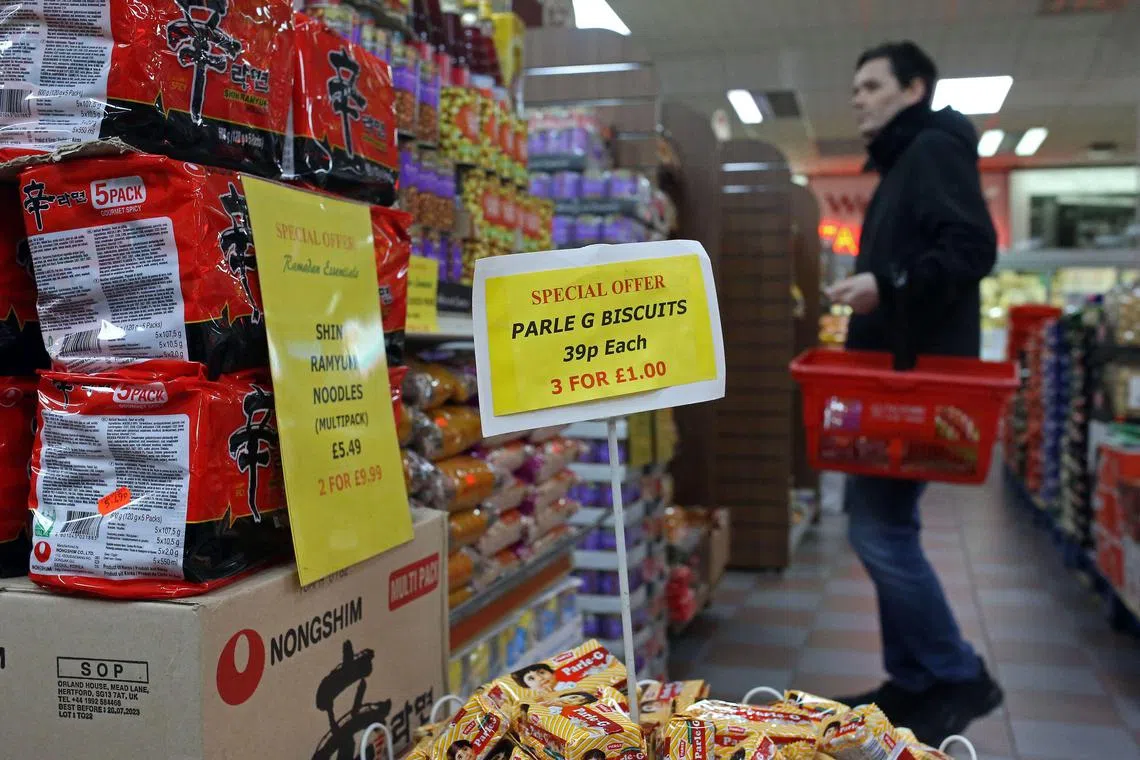Global food costs mark one year of drops, at odds with inflation
Sign up now: Get ST's newsletters delivered to your inbox

A UN index of food-commodity prices eased 2.1 per cent in March, capping the longest run of losses in data going back three decades.
PHOTO: AFP
Global food costs fell for a 12th straight month to reach the lowest level since July 2021, though there is still little sign the rout is actually feeding through to grocery shelves.
A United Nations index of food commodity prices eased 2.1 per cent in March, capping the longest run of falls in data going back three decades.
March’s decline was driven by grains, vegetable oils and dairy, which offset a rise in sugar and meat prices.
The gauge has fallen 21 per cent from a record set a year ago when Russia’s invasion of Ukraine disrupted grain exports, although it is still up almost 40 per cent from two years ago.
“While prices dropped at the global level, they are still very high and continue to increase in domestic markets, posing additional challenges to food security,” said Mr Maximo Torero, chief economist at the UN’s Food and Agriculture Organisation (FAO).
Food inflation has continued to climb in many countries, as cheaper commodities are offset by other costs like energy, labour, transport and processing.
In many developing countries that rely heavily on food imports, the situation has been worsened by local currency weakness, Mr Torero said.
But prices continue to rise in wealthier countries as well, putting pressure on governments to respond.
“Food price inflation is still a serious concern in many countries,” the Agricultural Market Information System, which tracks global food markets, said on Thursday.
A mix of ample supplies, subdued import demand and the extension of the Black Sea Grain Initiative


